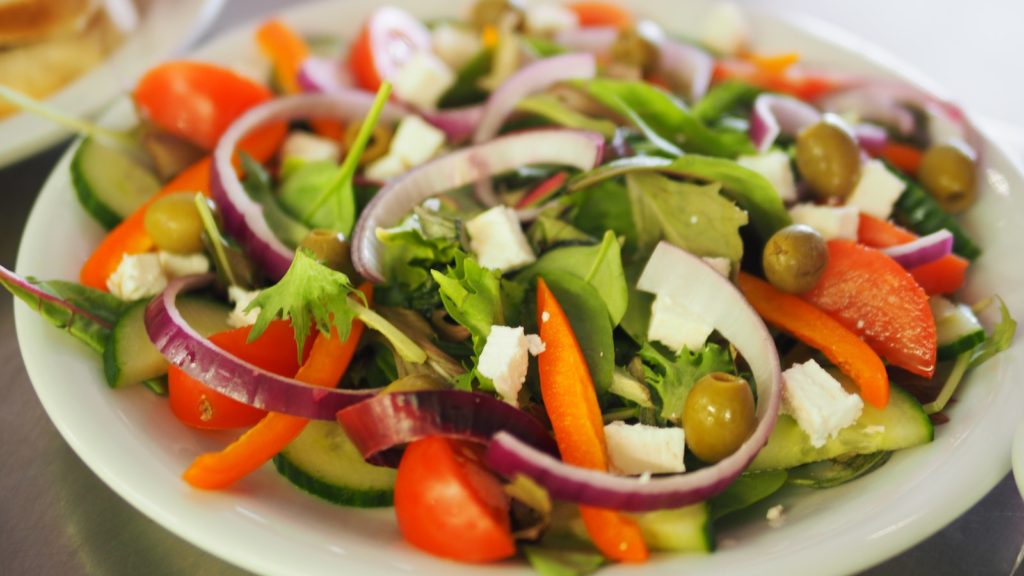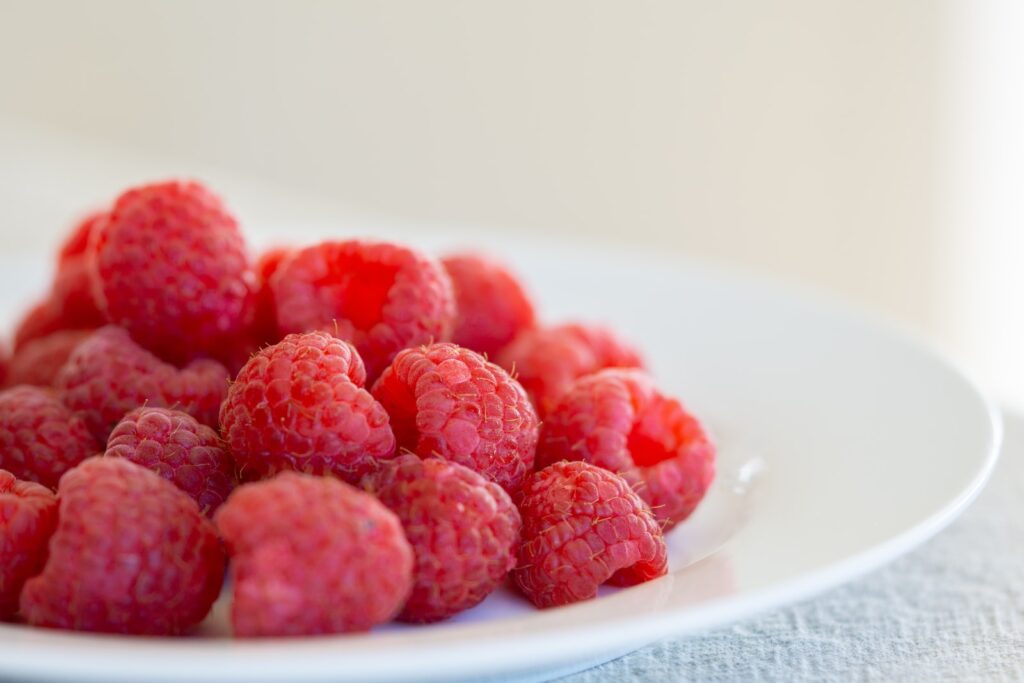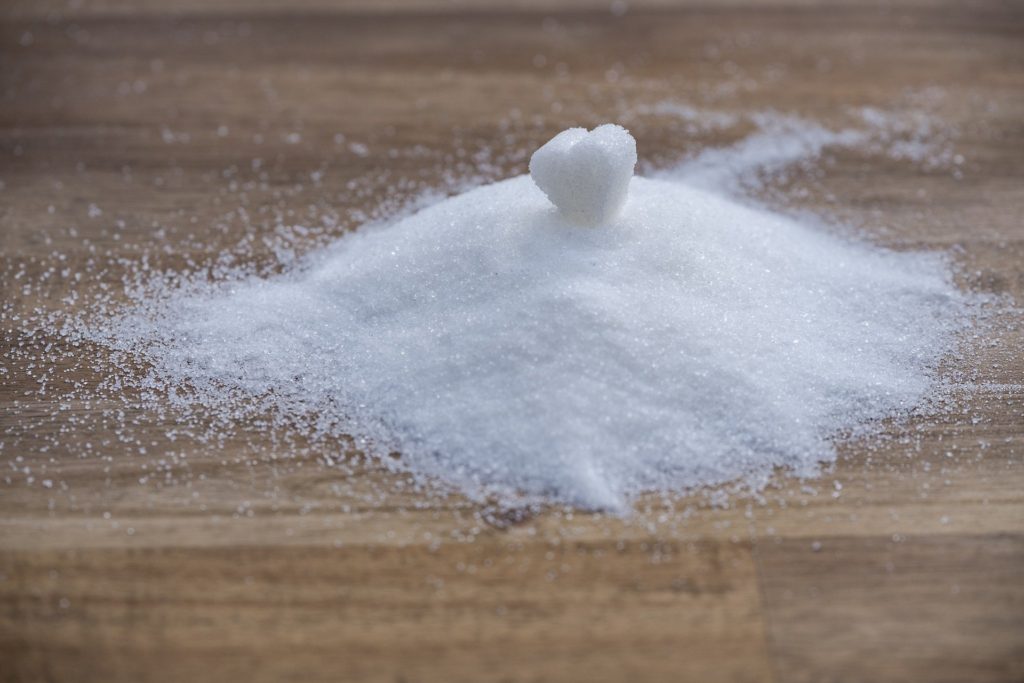If you have a gluten-intolerance, you may be wondering what’s the difference between the keto diet and the gluten-free diet.
In this article, I’ll discuss the differences between the two, & why eliminating gluten from your diet may not be as good as eliminating grains completely.
The ketogenic diet is a low-carb, high-fat diet that has become increasingly popular over the last few years.
It involves eating foods that are high in fat (usually, at least 70 percent of your calories come from fat), and limiting carbs to under 50 grams per day.
The goal is to lower insulin which would force your body to burn fat instead of carbs, resulting in weight loss.
There’s also evidence that following a ketogenic diet can improve insulin sensitivity and reduce inflammation.
And some studies have found that following a very low-carb ketogenic diet for long periods of time may lead to increased calcium retention and improved bone health.
But, the main challenge with the ketogenic diet is sticking to it.
What Is the Difference Between Keto & Gluten-Free?
The biggest difference between a keto diet and a gluten-free diet is what foods you can eat. On keto, you eat low-carb foods, but on a gluten-free diet, you just don’t eat gluten.
Keto and gluten-free are often used interchangeably, but there are a few things to keep in mind when you’re trying to decide between the two.
Gluten-free (GF) diets restrict the amount of gluten, the protein in grains, that can be consumed.
This is typically because people on gluten-free diets want to eliminate the discomfort that comes with eating gluten.
However, when you remove the protein (gluten) from the grain but still eat the grain, the amount of insulin that the food produces will go way up.
This is because carbs are more insulinogenic, whilst protein is less insulinogenic.
So if you removed the gluten and still ate the grain itself, that would solve the gluten problem but would create an entirely new problem of increased inflammation from carbs.
In contrast, keto diets are all about restricting carbs, not just the gluten in them.
Keto is a low-carb diet that’s focused on eating foods like meat, eggs, cheese, and vegetables.
These foods tend to be high in fat and protein, which can help you feel fuller longer, and lose weight.
They also help to reduce inflammation.

Is Keto Gluten Free?
Though keto is gluten-free, they are both two different types of diets. On keto, you drastically reduce the number of carbs you eat. However, on a gluten-free diet, you only don’t eat gluten.
Is Keto Better Than a Gluten-Free Diet?
Basically, while both diets can be used to help manage medical conditions such as celiac disease or irritable bowel syndrome (IBS,) doing a keto diet instead of a gluten-free diet would be better for most people since it helps lower your insulin too.
How Do I Start Keto?
There is no one-size-fits-all answer to this question, as the best way to start a ketogenic diet will vary depending on your individual goals and health status.
However, there are some general tips that can help you get started on your keto journey.
If you’re interested in starting a keto diet, the first step is to talk to your doctor or a registered dietitian to get their approval.
Once you have their okay, you can start making some changes to your diet.
Most people will need to cut back on their carbohydrate intake and increase their fat intake when starting a keto diet.
This can be done by eating more fatty meats, full-fat dairy products, nuts and seeds, avocados, and oils.
You should also make sure to get enough electrolytes, which can be found in salt, bone broth, and certain supplements.
You may also want to consider intermittent fasting when starting a keto diet, as this can help accelerate fat loss.
Starting a ketogenic diet can be challenging, but with proper planning and preparation, it can be a very successful way to improve your health and reach your fitness goals.
Which Plan Should You Follow?
If you want to solve all the problems that grains & carbs cause, go with the keto diet. If you want to eat more gluten-free carbs & you’re okay with not solving your inflammation, a gluten-free diet may also be helpful.
If you’re interested in starting a keto diet, here’s an article I made detailing the benefits of the keto diet & how to get started.
Hope this helped!
- Can You Still Lose Weight If You Aren’t in Ketosis? - February 8, 2023
- Can the Keto Diet Help With Depression? - February 8, 2023
- Why Does Processed Food Make You Fat? - January 2, 2023




